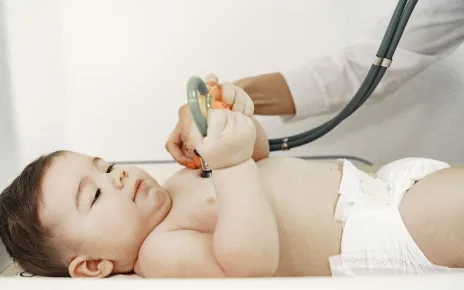The MRCPCH (Membership of the Royal College of Paediatrics and Child Health) clinical exam is a crucial step for aspiring pediatricians to obtain professional recognition in the field. Whether you’re a medical student, a junior doctor, or an international candidate, we will provide you with an in-depth understanding of the MRCPCH clinical exam, covering its structure, content, preparation strategies, and tips for success.
Overview of the MRCPCH Clinical Exam:
The MRCPCH clinical exam assesses candidates’ ability to apply their knowledge and skills in various pediatric scenarios. The exam consists of several stations, each focusing on specific aspects of pediatric practice. These stations include history-taking and communication skills, clinical examination, practical skills, data interpretation and decision-making, child development, behavior and assessment, communication skills and ethics, and parent counseling.
History Taking and Communication Skills:
This station assesses an aspirant’s ability to obtain a comprehensive history from patients or their parents/caregivers while demonstrating effective communication skills. It is important to establish rapport, ask open-ended questions, and listen actively to gather relevant information.
Clinical Examination:
Candidates perform focused and relevant physical examinations, highlighting their clinical acumen and ability to elicit signs and interpret findings. Practice systematic approaches to examinations and develop proficiency in assessing children of different ages and with various medical conditions.
Practical Skills:
This station tests essential procedural skills, such as venipuncture, nasogastric tube insertion, and urinary catheterization. Ensure you are familiar with the techniques, indications, and potential complications of these procedures.
Data Interpretation and Decision-Making:
Candidates are presented with clinical data and are expected to interpret it correctly, make appropriate diagnoses, and formulate management plans. Sharpen your skills in analyzing clinical information, formulating differentials, and making evidence-based decisions.
Child Development, Behavior, and Assessment:
This station evaluates a candidate’s understanding of child development milestones, behavior assessment, and management of developmental and behavioral disorders. Familiarize yourself with the normal developmental trajectory and common pediatric conditions, such as autism spectrum disorder and attention deficit hyperactivity disorder.
Communication Skills and Ethics:
Candidates engage in discussions about ethical dilemmas, breaking bad news, and obtaining informed consent. Develop ethical reasoning skills and practice communicating sensitive information with empathy and professionalism.
Parent Counseling:
This station assesses your ability to counsel parents effectively regarding diagnoses, management plans, and prognosis. Practice delivering clear and concise explanations, addressing parental concerns, and involving them in shared decision-making.
The MRCPCH clinical exam is a comprehensive assessment that evaluates both theoretical knowledge and practical competence in pediatric practice. By understanding the exam structure, preparing systematically, and honing your clinical and communication skills, you can increase your chances of success.
Connect with our team to know about MRCPCH Clinical courses.




